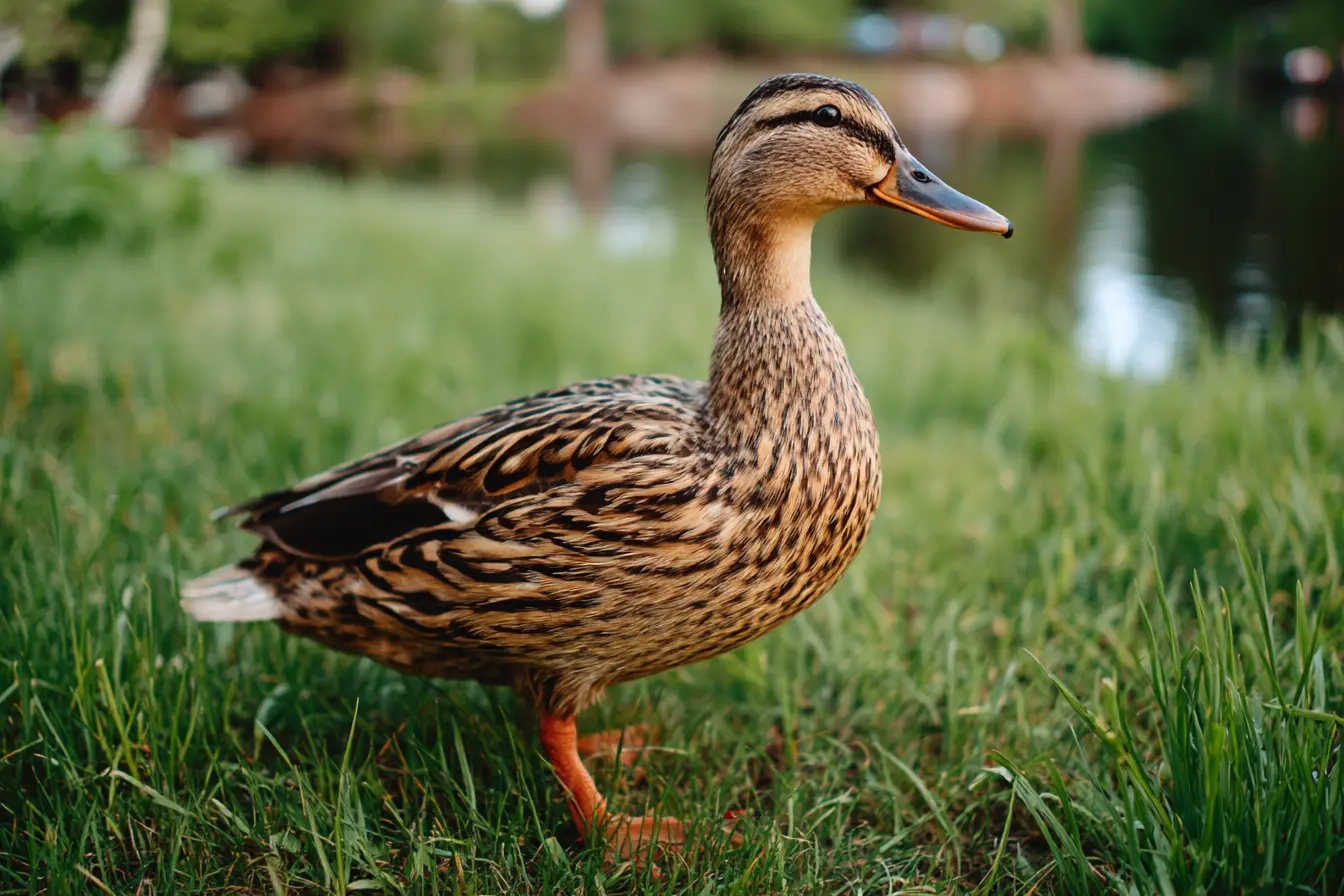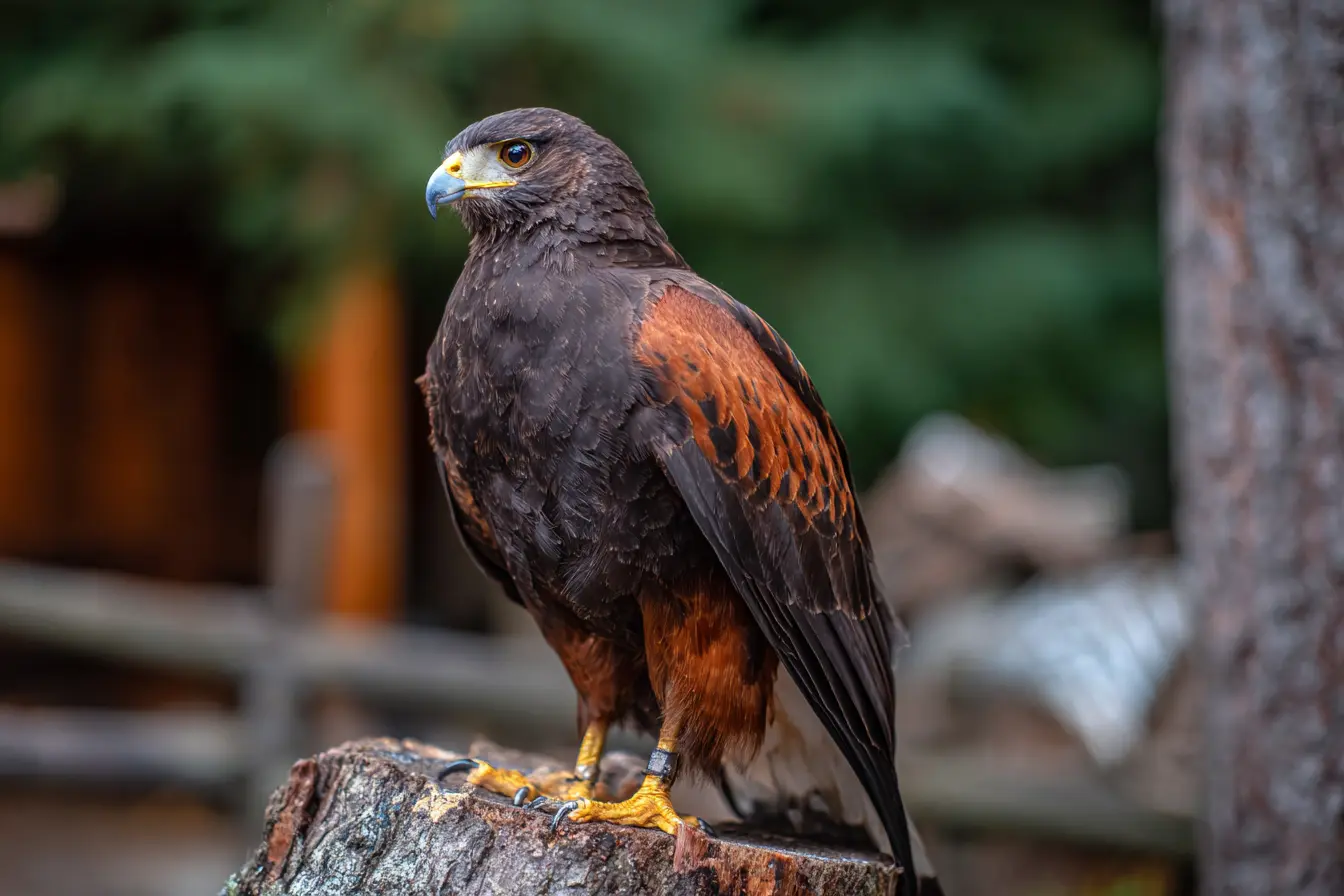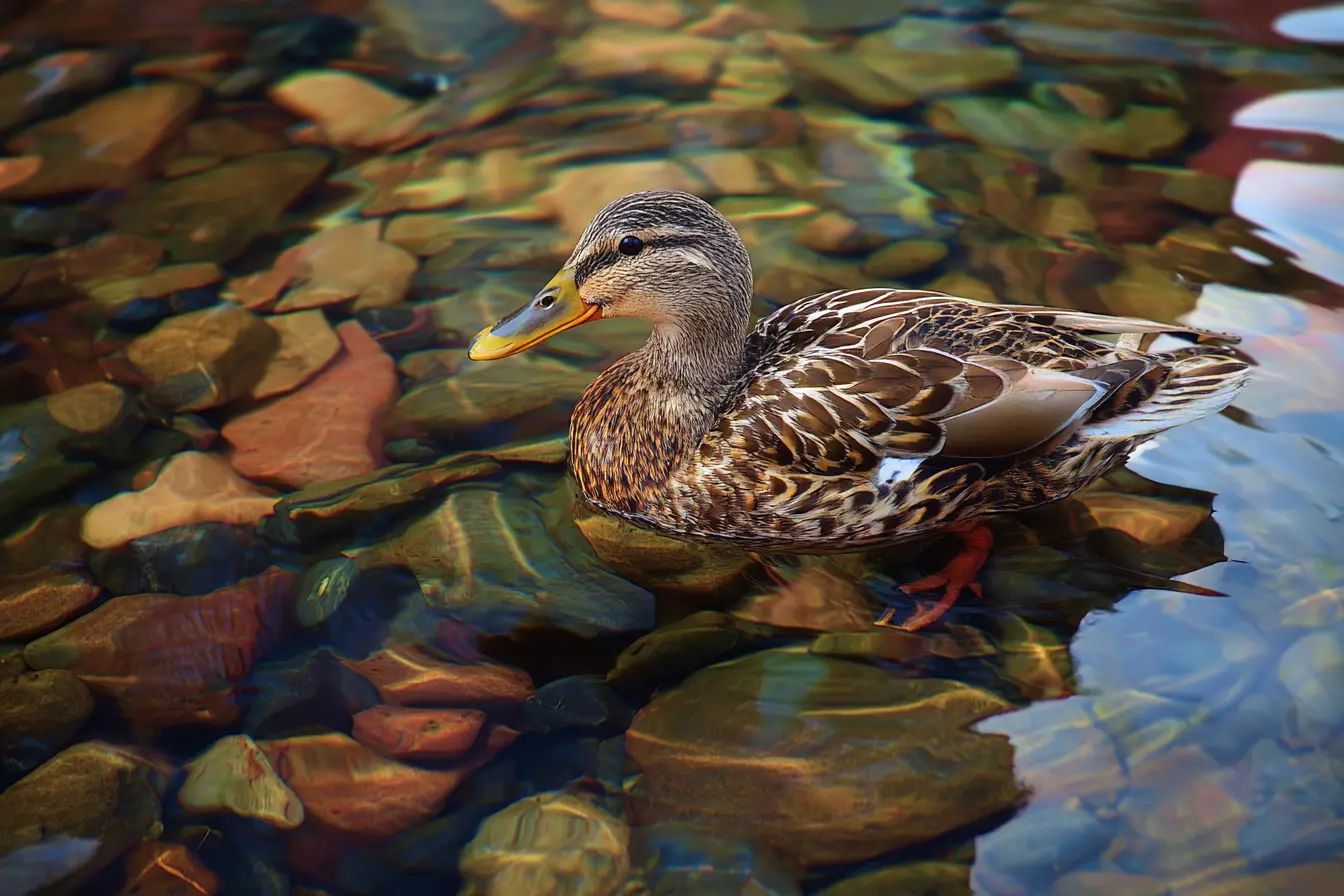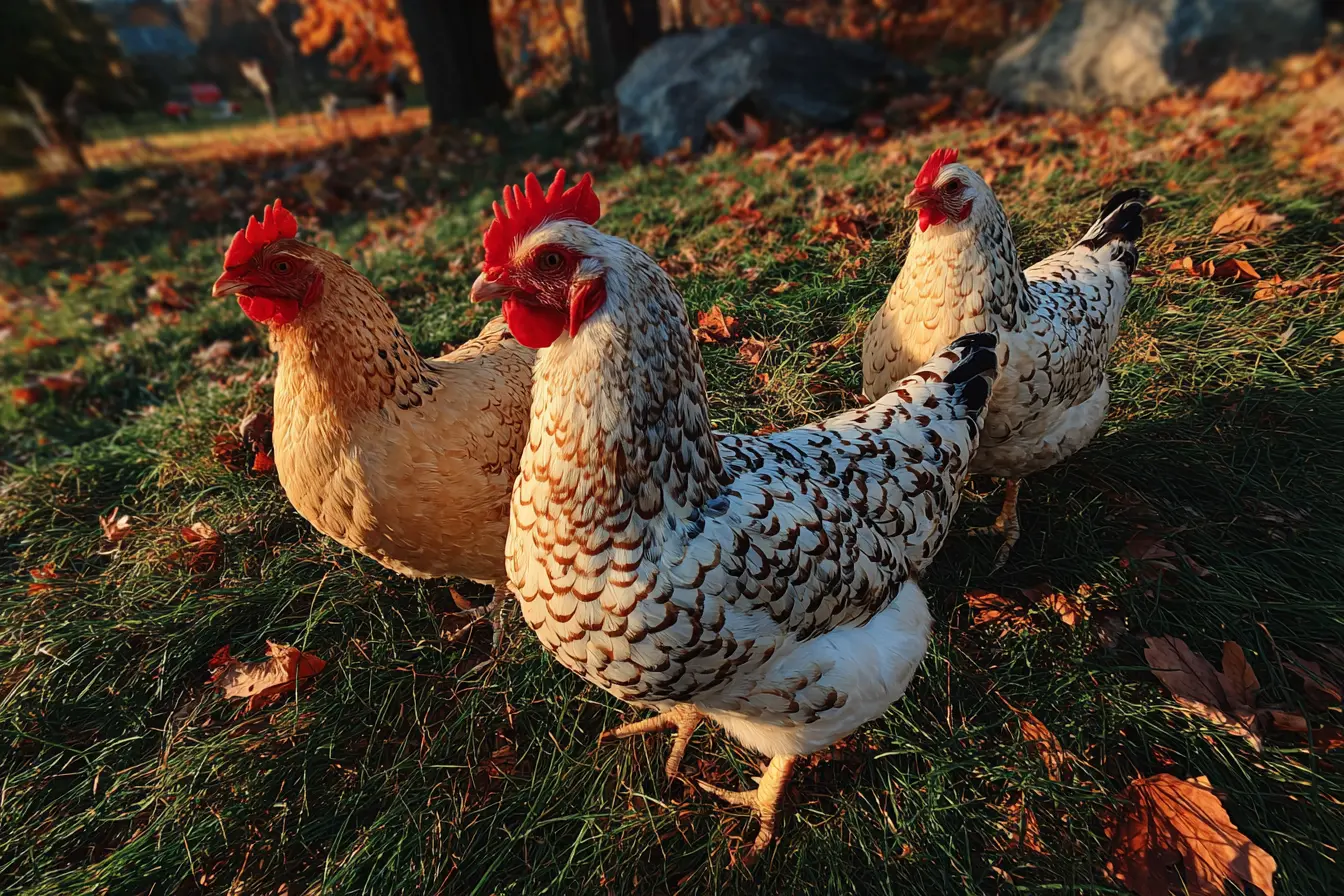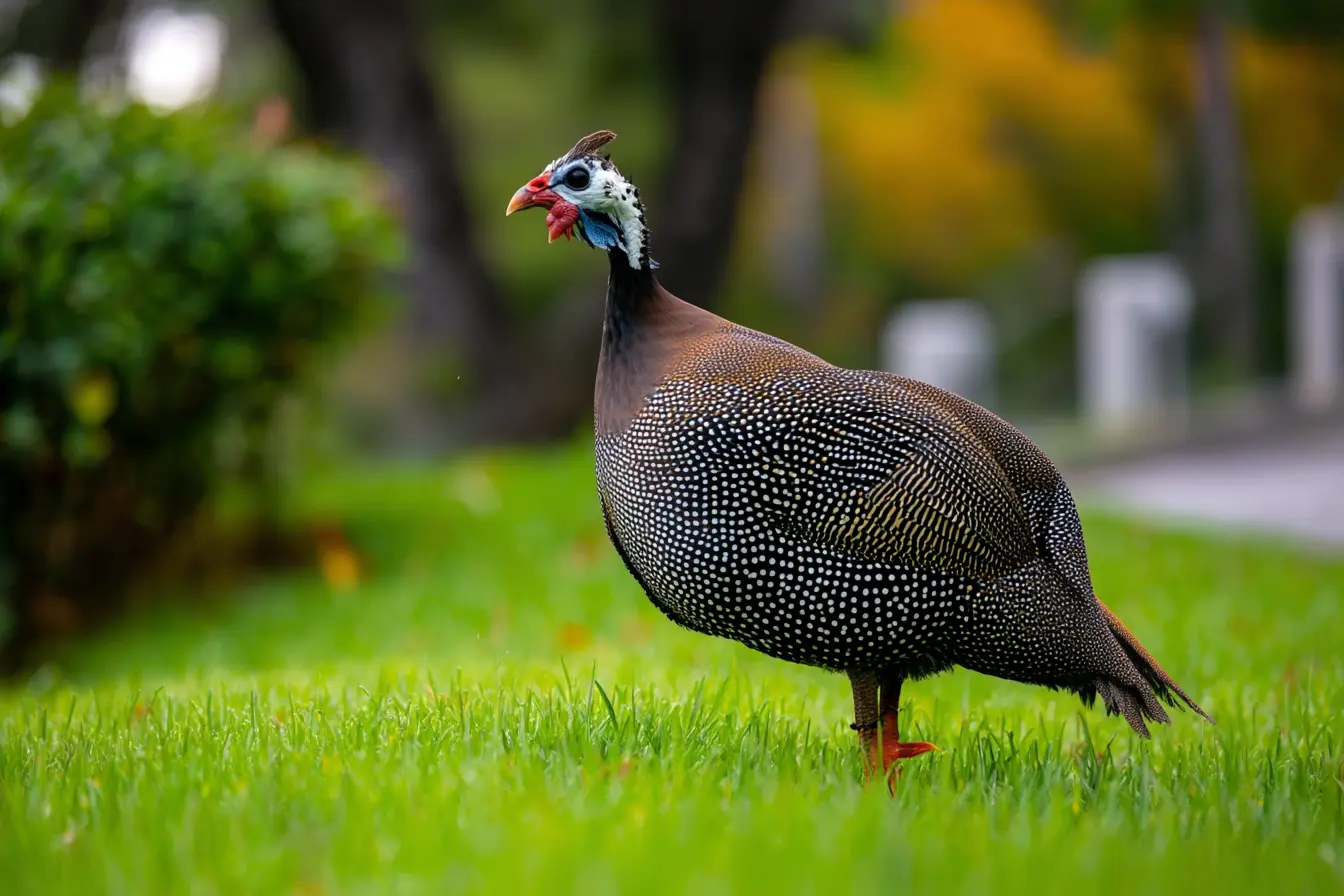
A Complete Guide to Keeping Guinea Fowl in the UK
Guinea fowl are hardy, striking birds originally from Africa that have become increasingly popular in the UK for their usefulness and character. They are excellent for pest control, make effective guards for your property, and can also provide eggs and meat. However, their independent and noisy nature means they require careful management. This guide covers everything you need to know about keeping guinea fowl successfully and humanely in the United Kingdom.
Understanding Guinea Fowl
Guinea fowl belong to the Numididae family, and there are several species worldwide, though the most common type kept in the UK is the Helmeted Guinea Fowl (Numida meleagris). These birds are medium-sized, typically grey with white speckles, bald heads, and horn-like casques.
They are social, active, and intelligent birds that live naturally in flocks. Guinea fowl are often compared to chickens but behave very differently. They prefer to roam, fly well, and are far less domesticated.
Benefits of Keeping Guinea Fowl
There are many reasons why smallholders and farmers keep guinea fowl:
- Pest control – They eat ticks, slugs, beetles, and other garden pests without damaging plants.
- Security – Guinea fowl are very vocal and will sound an alarm at anything unusual, making them excellent natural guards.
- Low maintenance – Once established, they are hardy and self-sufficient for much of the year.
- Meat and eggs – Their meat is lean and flavoursome, and their eggs, though smaller than chicken eggs, are rich and delicious.
- Ornamental value – Their plumage and proud bearing make them an attractive addition to any holding.
Legal and Welfare Considerations
Guinea fowl are considered domestic poultry under UK law and are therefore covered by the Animal Welfare Act 2006, which requires that they have:
- A suitable environment
- A suitable diet
- The ability to display normal behaviour
- Proper housing with or without companions as appropriate
- Protection from pain, injury, and disease
If you intend to sell their eggs or meat, you may also need to comply with hygiene and food labelling regulations and register with the Animal and Plant Health Agency (APHA).
Housing and Shelter
Although guinea fowl are hardy and often prefer to roost outdoors, it is important to provide them with safe housing for night-time protection.
Housing Requirements
- A solid, dry, draught-free house with ventilation
- Perches or raised roosts, as they prefer to sleep off the ground
- Minimum of 0.3 square metres per bird inside the house
- Nest boxes or secluded corners for laying hens
- Bedding such as straw or wood shavings, changed regularly
Unlike chickens, guinea fowl are reluctant to enter their house at dusk. Training them to return to a coop takes patience and consistency. It helps to feed them in the coop at the same time each evening and close the door once they enter.
Outdoor Space
Guinea fowl are naturally free-ranging and need plenty of space to roam. If you plan to keep them enclosed:
- Provide at least 10 square metres per bird
- Use fencing at least 1.8 metres high
- Consider a roofed run if you need to confine them for predator safety
However, they thrive best when allowed to roam freely during the day and return to a safe roost at night.
Feeding and Nutrition
Guinea fowl are omnivorous and excellent foragers. They consume insects, seeds, weeds, and small invertebrates. However, supplementary feeding is essential to ensure good health and productivity.
Recommended Diet
- Starter feed: 24–28% protein chick crumb for keets (young guinea fowl)
- Grower feed: 18–20% protein pellets from 6 to 12 weeks
- Adult feed: 16–18% protein layers or maintenance pellets for adults
- Grains: Whole wheat, barley, or maize as a supplement
- Grit and calcium: Always provide grit for digestion and oyster shell for laying hens
Fresh water should be available at all times. Guinea fowl are messy drinkers, so use heavy waterers that are not easily tipped.
Breeding and Raising Keets
Breeding guinea fowl can be a challenge, as they are not the most reliable parents and often prefer to nest in hidden outdoor locations.
Breeding Season
The breeding season runs from April to September. Guinea hens lay between 80 and 120 eggs per season, often in concealed nests in long grass or hedgerows. Eggs are smaller than chicken eggs but have thicker shells and a rich flavour.
Incubation and Hatching
Guinea fowl eggs can be hatched under a broody hen or in an incubator.
- Incubation period: 26–28 days
- Temperature: 37.5°C
- Humidity: 50–55% (rising to 65% for hatching)
- Eggs should be turned several times daily until the final three days
Keets (baby guinea fowl) are delicate and require more care than chicks. Keep them warm at 35°C in a draught-free brooder, reducing the temperature gradually by 3°C each week until they are fully feathered.
Feed keets a high-protein game bird starter crumb and provide shallow drinkers to prevent drowning.
Health and Disease Management
Guinea fowl are robust birds but can still be affected by common poultry diseases. Good hygiene and biosecurity are vital.
Common Issues
- Coccidiosis – A parasitic gut infection; prevent with clean bedding and medicated feed if necessary.
- External parasites – Lice and mites can be prevented with regular dust bathing areas and inspection.
- Worms – Periodic worming is advised, particularly for free-ranging birds.
- Respiratory infections – Ensure housing is dry and well-ventilated to avoid respiratory problems.
Regularly disinfect coops, change bedding, and ensure feed and water are kept clean. Watch for signs of lethargy, ruffled feathers, or poor appetite.
Behaviour and Management
Guinea fowl have strong social bonds and should never be kept alone. A flock of at least six birds is ideal for their wellbeing. They establish a hierarchy and move together as a group.
They are known for their loud calls, which they use to alert the flock to danger. While this makes them effective guards, it may not suit quiet residential areas.
Training them to return to the coop at night requires patience. Feeding them in the coop and confining them for the first few weeks helps them associate it with safety.
Egg Production
Guinea hens start laying at around eight months old, though this can vary. They produce eggs seasonally, mainly from spring to early autumn. The eggs are small, speckled, and very hard-shelled.
Hens prefer secluded nesting areas. Collect eggs regularly to encourage continued laying and prevent predation or spoilage.
Meat and Culinary Value
Guinea fowl meat is lean, tender, and similar to game bird meat, with a rich flavour. It is lower in fat than chicken and highly prized by chefs. Birds can be processed at around 14–16 weeks of age.
If producing meat for sale, ensure compliance with UK food hygiene and slaughter regulations.
Predator Protection
Foxes, badgers, and birds of prey are the main threats to guinea fowl. Secure housing, electric fencing, and covered runs can help protect them. At night, always lock them inside a safe shelter.
Winter Care
Guinea fowl cope well with cold weather as long as they remain dry. Provide a draught-free house with deep bedding and extra feed during frosty periods. Avoid damp conditions, as moisture can lead to respiratory illness.
Record Keeping
Maintain detailed records of flock numbers, hatching dates, feed consumption, and health treatments. Accurate records are essential if you breed or sell birds and useful for monitoring flock health and productivity.
Conclusion
Keeping guinea fowl is both rewarding and practical. They are striking, hardy birds that can enhance a smallholding, provide effective pest control, and supply delicious eggs and meat. Their independent nature and distinctive calls make them a lively addition to any flock. With proper care, safe housing, and an understanding of their behaviour, guinea fowl can thrive in a wide range of British environments, offering years of interest and utility to their keepers.
Contents
- Understanding Guinea Fowl
- Benefits of Keeping Guinea Fowl
- Legal and Welfare Considerations
- Housing and Shelter
- Feeding and Nutrition
- Breeding and Raising Keets
- Health and Disease Management
- Behaviour and Management
- Egg Production
- Meat and Culinary Value
- Predator Protection
- Winter Care
- Record Keeping
- Conclusion
Tags
Vets near you
Speciality vets
- Aquatics vet specialists
- Birds vet specialists
- Camelids vet specialists
- Cats vet specialists
- Cattle vet specialists
- Deer vet specialists
- Dogs vet specialists
- Equines vet specialists
- Exotic vet specialists
- Goats vet specialists
- Pigs vet specialists
- Poultry vet specialists
- Sheep vet specialists
- Small Mammals vet specialists
- Wild vet specialists
Vet facilities
- Accessible by public transport
- Blood testing
- Car park nearby
- Client car park
- Dentistry
- Diagnostic imaging
- Disabled public access
- Flea and worm treatments
- Microchipping
- Mobile services
- Neutering
- Open at weekends
- Out-of-hours service
- Referral interests
- Referrals only
- Street parking outside
- Toilets available
- Vaccinations
